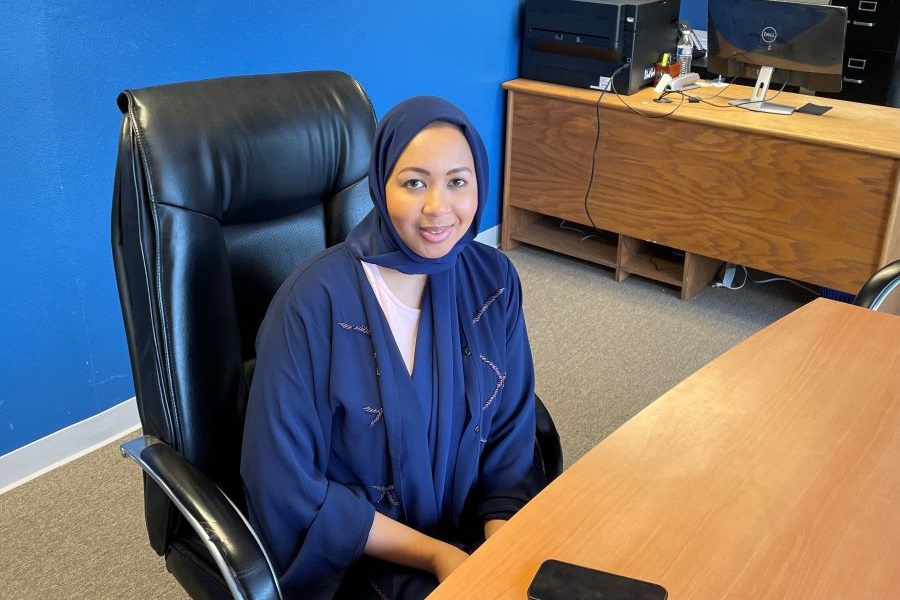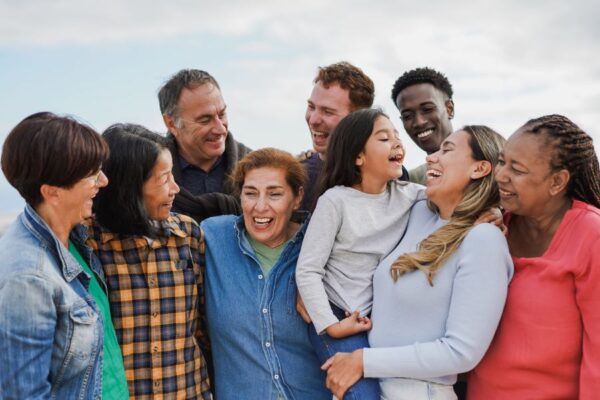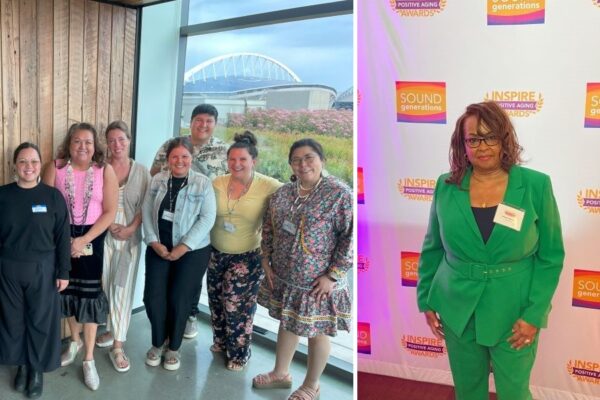Education Advocates Are Abound, Thanks to SPEB
The Black Community Building Collective is a coalition of 15 Black-led organizations brought together by United Way of King County to build relationships, form strategies and implement those strategies with United Way funding. United Way thanks Brighton Jones for its sponsorship of the Black Community Building Collective.
United Way features monthly spotlights of Collective members. This month, we’re featuring Supporting Partnerships in Education and Beyond (SPEB) is a Renton-based organizations founded in 2014 by a group of Somali mothers to advocate on behalf of their and other immigrant families in the education system.
Since its founding, SPEB (formerly Somali Parents Education Board) has evolved to support other communities of color facing similar issues by advocating for change in their schools, districts, Washington State and nationwide. We sat down with Regina Elmi, SPEB co-founder and Executive Director, to learn more.
United Way of King County: What are the origins of Supporting Partnerships in Education and your work with the organization?
Regina Elmi: I come from the East Coast, and when I first came as a young refugee, I watched my mother and father have a really hard time understanding that the system will always see me as “one of those other kids.” At the time, we landed in Alexandria, VA, and we went to a predominantly Black school [system]. But even as I was transitioning to high school, I’ll never forget my eighth-grade counselor telling me, “You should not be thinking about honors classes.”
My parents, because of the culture they come from, told me, “Your counselor knows best.” But [fortunately] I had an advocate couple, a husband who was a high school marketing teacher and a wife who led a nonprofit for first-generation college students.
Then when I came here and saw it was happening in the Greater Seattle area [as well], I was like, “What is going on here?” Then I saw all the corporations here and the budgets we have and wondered why we are investing so little in education and providing basic needs such as interpretation or supporting families with navigating the system or hiring people who look like them. That’s how Somali Parents Education Board started—it was three moms.
United Way of King County: And you were one of those moms.
Regina Elmi: Yes, it was two of my friends and me. It was just moms coming together having tea. At that time, we weren’t even thinking about starting a nonprofit. It was more of creating a support system. Down the road, we realized that this is not an immigrant or Somali issue; the system is a fast-moving machine that sucks the life out of you. The privilege lens that my friends and I brought is that we grew up in the U.S., so we knew that we belong in the African diaspora and the Black community and we’re living off the shoulders of Black people and their ancestors who came before us. They sacrificed so that we could actually be here and build something for ourselves.
In 2016, we decided to do some landscape analysis and data processing. We started community conversations and brought in another friend who was a consultant and we started having conversations with community members outside of the Somali community. That reaffirmed what we already knew: Yes, self-identity and generational experience matter, but how do you lean into one another as a bigger community?
United Way of King County: What are the major pillars of your work?
Regina Elmi: Our three pillars are:
- Building a culture of social justice healing: Making sure that our advocacy is not retraumatizing. We prep community members for when they are engaging in conversations with school board members, elected officials and at the federal level.
- Capacity building and ambassadorship building: Making sure we are not the ones doing the work but co-designing. We like to make sure the leaders come to the table, and those leaders are parents, educators, community partners and youth. Our youth numbers are really growing right now.
- Philanthropy: We are really challenging where money is being invested and reminding the philanthropic industry and donors that, “The money was never yours to keep, and you don’t tell grassroots work, especially Black-led grassroots work, how to do their work. They know their communities best, they’ve already earned their communities’ trust, they have invested and sacrificed much of their time. You trust them and you let it go. If you want to be a part of it, come and volunteer.”
United Way of King County: How many youths and parents do you serve and where do you serve?
Regina Elmi: In terms of our outreach, we are close to 7,000 people a year. Then there is a tracking of a cohort, our learning institute; those students are going to finish their fourth year this year. That cohort is about 120 people, and the whole idea of the cohort is to make sure they go through a learning journey together and they each go back into their own neighborhoods and do their advocacy. And we support them in getting a mini grant to do projects based in their neighborhoods.
Down the road, we realized that this is not an immigrant or Somali issue; the system is a fast-moving machine that sucks the life out of you.
Regina Elmi, co-founder and executive director, Supporting Partnerships in Education and Beyond
United Way of King County: Why did you change your organization’s name from Somali Parents Education Board to Supporting Partnerships in Education and Beyond?
Regina Elmi: It’s not only education anymore. The reason we rebranded and renamed our organization is that the “Beyond” part is really critical. We are also stepping into economic development and gentrification. We are doing work with a coalition in Skyway to make sure that the last living Black communities don’t get displaced. We are telling communities, “You need to hold your councilmembers responsible because in unincorporated King County, what happens is that it doesn’t get any resources, it’s too high to live in King County anymore, and our communities have to move. And they’re going to continue to move to the point where you’re probably not going to see people who look like us until you drive 3-4 hours away.”
United Way of King County: What are some of the results of your efforts after nine years?
Regina Elmi: You can see it in some work we’ve done in school districts. In Renton school districts, particularly the Renton Innovation Zone, in the three elementary schools in Skyway, West Hill and the Renton Highlands. I am a Renton parent, and I have been for a very long time now. And when we joined the Renton Innovation Zone, it took a lot of partners. But for the last two and half months of the 2019 school year there was a free after-school program. We learned from families that it was difficult to pick up their children at 3 p.m., and they needed an afterschool program but they couldn’t afford it.
Now across the elementary schools there is free afterschool program—just piloting that sent a ripple effect for other partners to join. It means a lot to communities, because now every day, even on Saturdays, you go to the elementary schools and you see coaches and kids outside and you see African drum happening, piano lessons, ballerinas. And it’s all being led by people who look like us because kids in those schools look like us. Socially, emotionally and behaviorally it’s going to shift the trajectory of the experiences those families and those students talk about.
United Way of King County: What are your upcoming programs and events?
Regina Elmi: This Saturday, May 13, we are doing our end of the year celebration at the Renton Senior Community Center from 1–4:30 p.m. It’s family friendly with a ton of food, and artist and youth activities. It’s a recognition for community members who have shown up year after year.





Comments
Ahmed
May 18, 2023https://immigrantsseniorsandyouthunited.org/